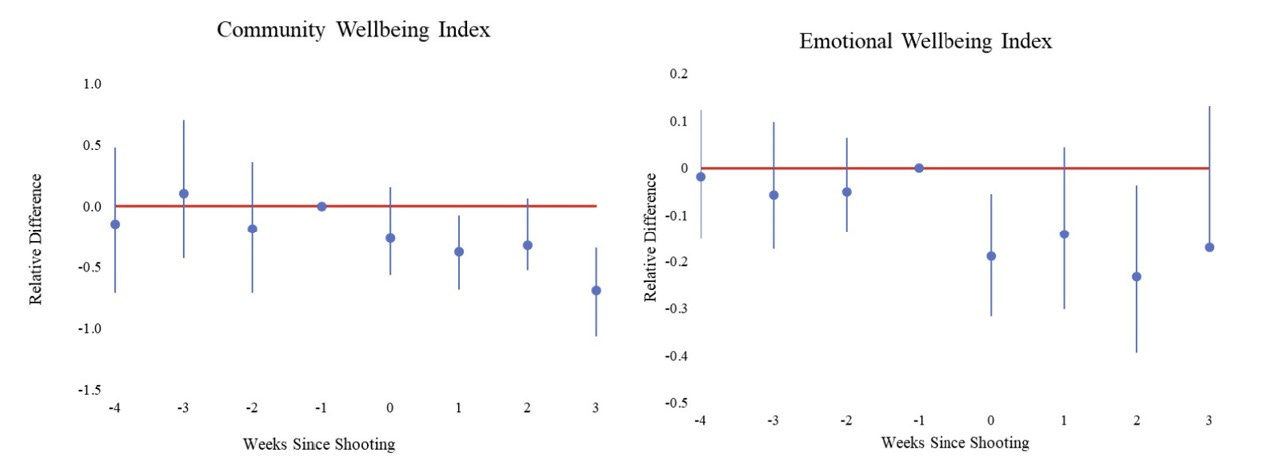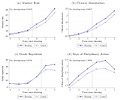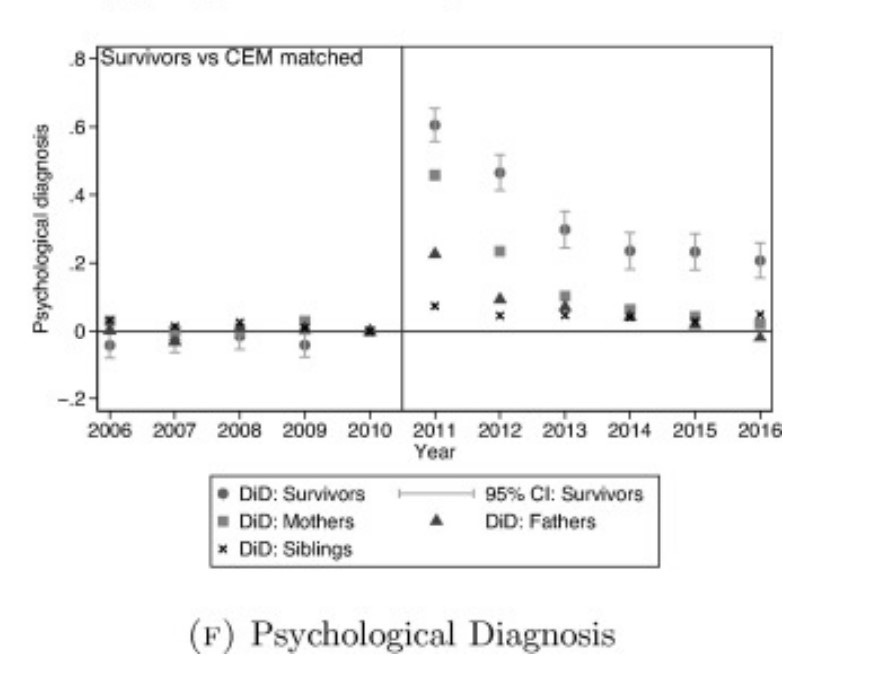Tomorrow is the one-year anniversary of the Uvalde mass shooting. Nineteen fourth graders and two teachers at an elementary school were murdered. As a mom, a Texas resident (at the time), and a public health professional, this shook me. Mass shootings continue to shake me.
Gun advocates claim that the probability of dying from a mass shooting is rare. And, compared to other firearm deaths, they are right. But these deaths are preventable. We also fail to recognize the ripple effects—the detrimental impact on the survivors and the communities for years to come.
The impact is enormous and far-reaching.
Impact on survivors
As you can imagine, survivors suffer from mental health problems following mass shootings. This is particularly the case among children with direct exposure (heard gunshots, saw bodies, saw the gunman) or risk factors (pre-event traumatic exposure). Scientific literature shows school shootings result in:
Increases in prescription antidepressants up to two years
High levels of PTSD; after a 1988 elementary school shooting, the prevalence of PTSD among child survivors reached 91% 14 months after the mass shooting
Declines in overall health and well-being
Engagement in more risky behaviors
These traumatic experiences can bleed into children’s education and employment years later. After school shootings, children experience:
Increased absenteeism and grade repetition
Lower rates of high school graduation, college enrollment, and college completion
Lower employment and earnings at ages 24-26
Decreased test scores in math and English that persist for up to three years post-shooting

Impact on survivors’ parents
Then there are the parents of the survivors. Those who get a call or text message that there was a mass shooting without knowing whether their child is okay. They are tasked with helping their child cope with this trauma. Parents of survivors report:
Reduced general well-being; in fact, we see the effect on parents regardless of whether their child was in the tragedy
Increased levels of PTSD—nightmares, flashbacks, severe anxiety; in one study, one in two parents of elementary school survivors reported PTSD
Increase in other psychological diagnoses for years to come, as seen among parents and siblings in Norway after a mass shooting
Impact on the helpers
Then there are the helpers—the firefighters, FBI agents, police officers, other teachers, volunteers, hospital staff, therapists, and everyone who helps in the immediate aftermath and thereafter.
Unfortunately, this has been explored very little in the scientific literature. One study reported increased fear, hypervigilance, and sleep difficulties among the helpers.
Impact on the greater community
Then there’s the community. Neighbors, grocery store workers, bus drivers, and more are impacted indirectly. The deadlier the mass shooting, the stronger and longer lasting the community-level effect. This is particularly the case in small communities because the psychological proximity to victims is strong.
After a mass shooting, community members report:
Persistent feelings of insecurity
Impact on pregnancies; women are more likely to give birth to very premature and low birth-weight babies
Decline in community and emotional well-being

Bottom line
There are tremendous costs to mass shootings, even for those not directly involved. These tragic events, like in Uvalde, set off a cascade of collective traumas that result in physical, mental, and emotional impairment for thousands; far more extensive and for far longer than critics portray. If you’re feeling it like me, you’re not alone.
Love, YLE
Some of this was written during my “day job” with brilliant colleagues at the Meadows Mental Health Policy Institute.
“Your Local Epidemiologist (YLE)” is written by Dr. Katelyn Jetelina, MPH PhD—an epidemiologist, data scientist, wife, and mom of two little girls. During the day she works at a nonpartisan health policy think tank and is a senior scientific consultant to a number of organizations, including the CDC. At night she writes this newsletter. Her main goal is to “translate” the ever-evolving public health science so that people will be well-equipped to make evidence-based decisions. This newsletter is free thanks to the generous support of fellow YLE community members. To support this effort, subscribe below.



YLE,
Allow me to report on my personal experience with a mass shooting. Thurston High School, May 21, 1998. I can tell you that every single point you made in this post has touched me personally. Here you are:
Impact on Survivors: The young woman who works in our yard (when she can) was in the cafeteria the morning Kinkle brought his .22 rifle to school, along with two handguns. She has lost two classmates to suicide, and she struggles to this day with the impacts of that shooting. A dear friend's younger sister was in the cafeteria that morning. She still lives at home with her toxic parents, unable to leave her "home". A co-workers child who was shot in the head, but survived. She does live independently with a great deal of help from her parents. (Please note: Had the weapon been an AR-15, she would have had her head blown up.)
Impact on survivors parents: My co-worker had flashbacks and he and his wife are still in long term therapy. My friend's parents have their daughter living with them, they are afraid to let her move out. They are not healthy people.
Impact on the helpers. I'm a retired county cop. My friends at Springfield PD who responded to this have had a great deal of ongoing trauma; two of them left law enforcement shortly after this shooting, and I don't know them well enough to know why. Two of my closest friends in our agency were the detectives assigned to the patricide. Kinkle killed both of his parents, booby trapped the house with home-made bombs. While both of them had successful careers after that (one retired as a captain, the other retired after 25 years as a patrol cop. They were horribly impacted by that. My knowledge of the impact on the EMS/Fire responders does not extend past the initial debriefings that we did of that event.
Impact on the greater community: I cannot speak to details here; I do know that this event has had a huge impact on the community, and does to this day. I recently played a concert at Thurston HS, my community band playing with the high school band. One of our ensemble members (new to the area) said "This is the school where the shooting happened??" Even as a recent transplant from the east coast, they knew about the shooting.
Personal note: I was not on duty that day. I was a brand new member of our peer support team. The first debriefings I ever did were following this event. Let me just say that was a heck of an event to cut my teeth on. Peer support was new to the area, and we did not do as well as we would do today, but we did do some good.
I will never forget.
Thank you for writing about this. It is a reverberating tragedy. Recently, the NY Times Magazine did an essay on the impact on investigators. It too is worth the read: https://www.nytimes.com/2023/04/20/magazine/sandy-hook-mass-shooting-scenes.html